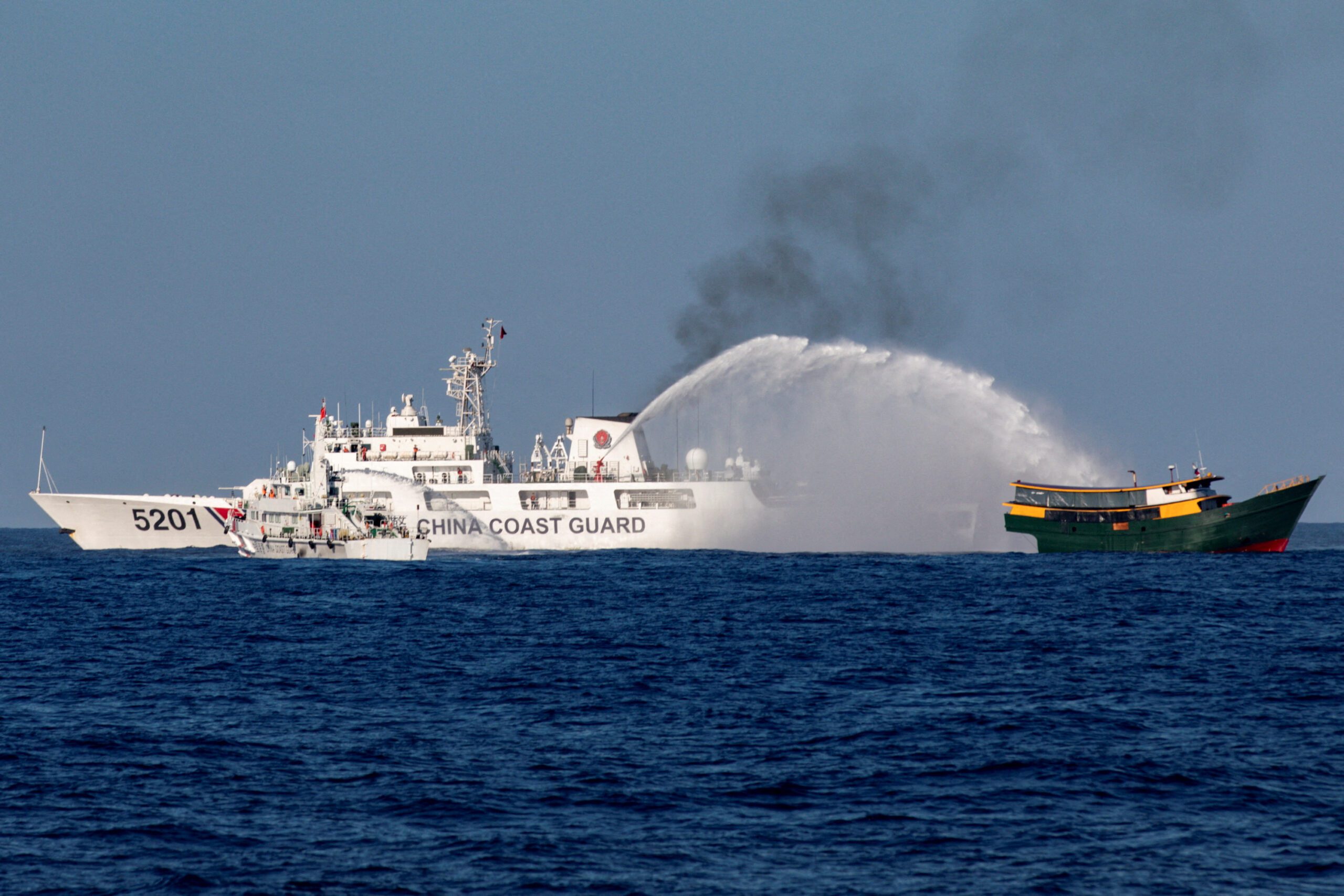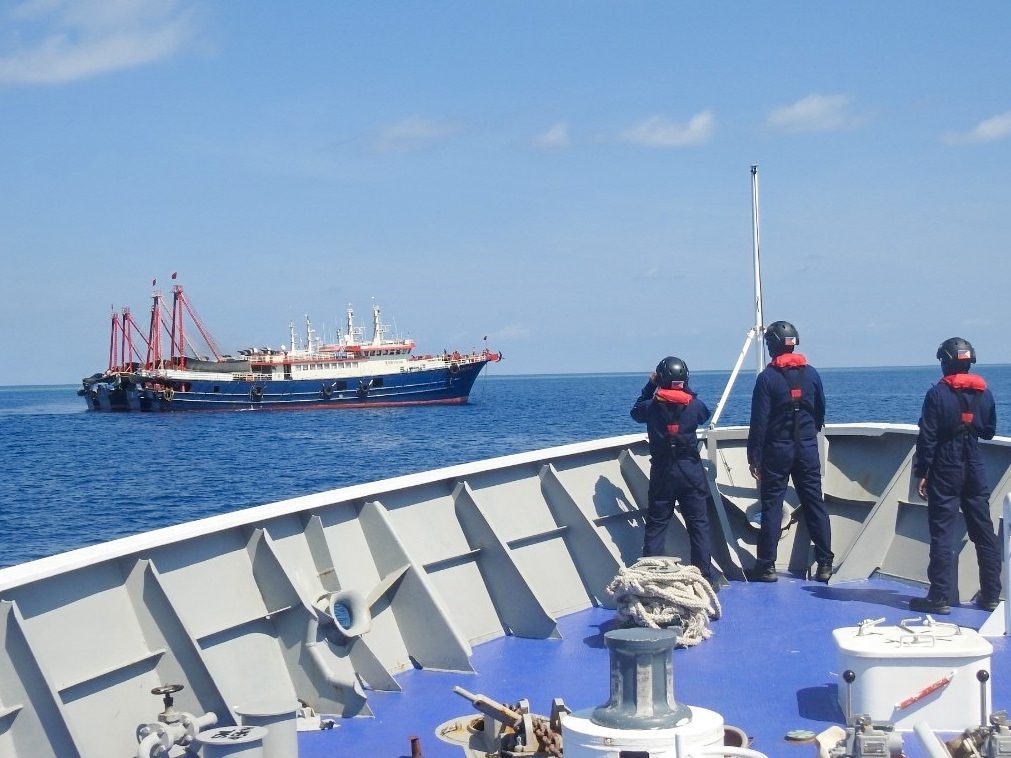U.S. Navy photo showing a confrontation between the USS Decatur (left) and PRC Warship 170 (right) in the South China Sea on Sunday, September 30, 2018. U.S. Navy Photo
By Ira Breskin – The maritime territorial dispute between China and many of its neighbors, as well as the United States, has major negative, long-term policy implications for shipping, a leading academic says.
China’s contention that it has sovereignty over a large swath of the South China Sea violates the UN Convention on the Law of the Sea (which China has signed) and other rules of international law and practice, said Dr. Mark Meirowitz this week at a seminar lecture.
Meirowitz is an associate professor at State University of New York Maritime College in the Bronx, NY, whose doctoral dissertation addressed several UNCLOS clauses and the interplay of the law of sea with US domestic politics and policy-making. He is also an attorney.
Meirowitz’s position mirrors that of the United States, which is not a UNCLOS signatory; however, Washington has, in effect, through actual practice, abided by the spirit and terms of UNCLOS, which took effect 25 years ago. That’s because the United States supports international law, something that China, in this case, does not, Meirowitz said.
The dispute, which has flared up intermittently as a result of close encounters with the US Navy vessels, most recently with USS Decatur, a Navy destroyer, near the Gaven Reef in the South China Sea, is currently unresolved. And this situation could be problematic should China harden its position and restrict navigation in an area regularly transited by more than one-third of the world’s maritime traffic.
The US contends that when conducting its freedom of navigation operations (FONOPs) in the South China Sea it is promoting the principle of freedom of the seas, as articulated by Hugo Grotius in his groundbreaking 1609 Mare Liberum treatise, according to Meirowitz.
China contends that the US is violating its sovereignty based on China’s extensive claims to exclusive economic zones (EEZ) in the area.
China has chosen to ignore the Hague-based Permanent Court of Arbitration’s 2016 ruling in connection with China’s dispute with the Philippines. The tribunal found without merit Bejing’s claim to control the disputed area because it is a Chinese territorial sea and sided with the Philippines
It also rejected China’s claims to sovereignty based on historical rights as well as China’s establishing an EEZ based on land features the nation has developed and militarized, not qualifying under international law as an EEZ.
Had China’s claim been upheld, foreign-flagged vessels would be entitled to the right of free passage in Chinese waters, subject to Beijing’s permission. Giving China such illegal discretion would establish a dangerous precedent and could be crimp worldwide shipping operations, Meirowitz said. The best approach is for be US to continue its FONOPs in order to preserve freedom of the seas for the US and all nations in the region, Meirowitz said.
The Business of Shipping is new column from Ira Breskin, senior lecturer at SUNY Maritime College in the Bronx, NY and author of The Business of Shipping (9th edition), North America’s most comprehensive industry-focused book explaining and analyzing marine transportation and related industries, both domestic and international.
Editorial Standards · Corrections · About gCaptain

 Join The Club
Join The Club











